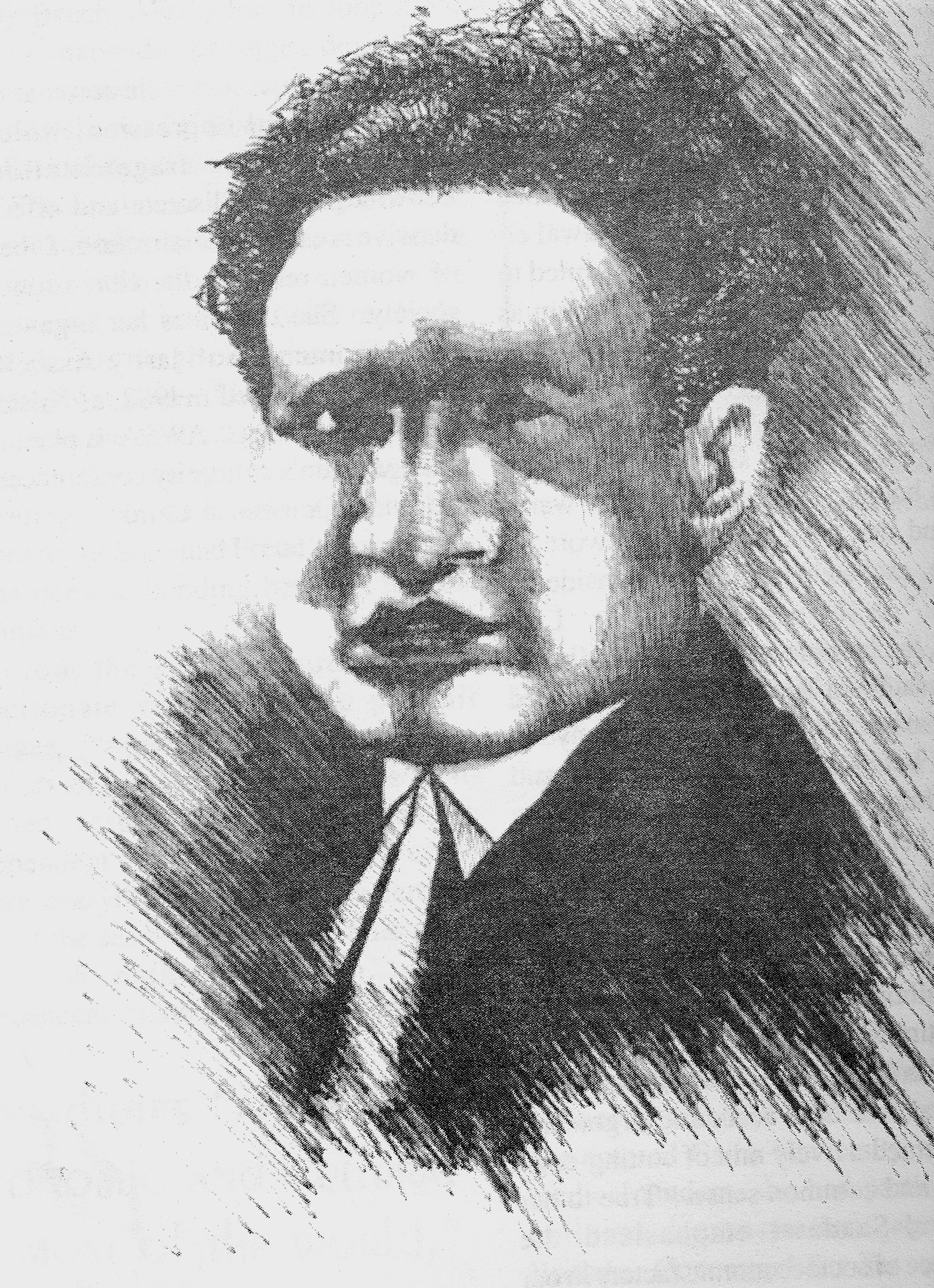Sayyed Darwish, Major Arab Music Pioneer
Artwork: Sayyed Darwish by John Sayre for Al Jadid
“There have been many attempts to suppress Darwish’s musical legacy, and reviving this legacy will expose how much some musicians have “borrowed” from him. Thus, bringing the musical legacy of Darwish into the public domain is a step toward revitalizing Arabic music and setting the record straight,” in the words of Nezar Mrouhe.
Darwish was raised in one of the poorest suburbs of Alexandria, Kom al-Dukka, by his father who worked as a carpenter. He prepared from an early age to become a sheikh. With the sudden death of his father, the family’s main supporter, he went to work to support his mother and sister, at first beginning as a cantor in religious ceremonies before moving to sing in clubs. During this period, he learned to compose music. His music was characterized by seriousness, energy and strong features of Egyptian society, and quickly became very popular. He earned his distinction by singing not for the rulers and the feudal lords but for the people, his music representing the image of the very poor, like water-sellers, porters, cobblers, waiters, shopkeepers, and lottery vendors – hard-working people with rich values. “Many of his melodies were adopted from the calls of vendors and the characters that are heard and seen daily on the streets,” according to Mrouhe. Darwish was an artist of conscience, unwilling to produce the type of art that was then prevalent. He believed that his art was holy and should be made available to the millions, rather than for the entertainment of a few individuals. His contributions pushed Eastern music beyond mere amusement of entertainment.
Translated from the Arabic by Sami Asmar.
Edited excerpt from Nezar Mrouhe's “Sayyed Darwish, Major Arab Music Pioneer,” which appeared in Al Jadid Magazine, Vol. 5, No. 29, Fall 1999. To read the full essay, click on the link below:
Copyright © 2020 AL JADID MAGAZINE

